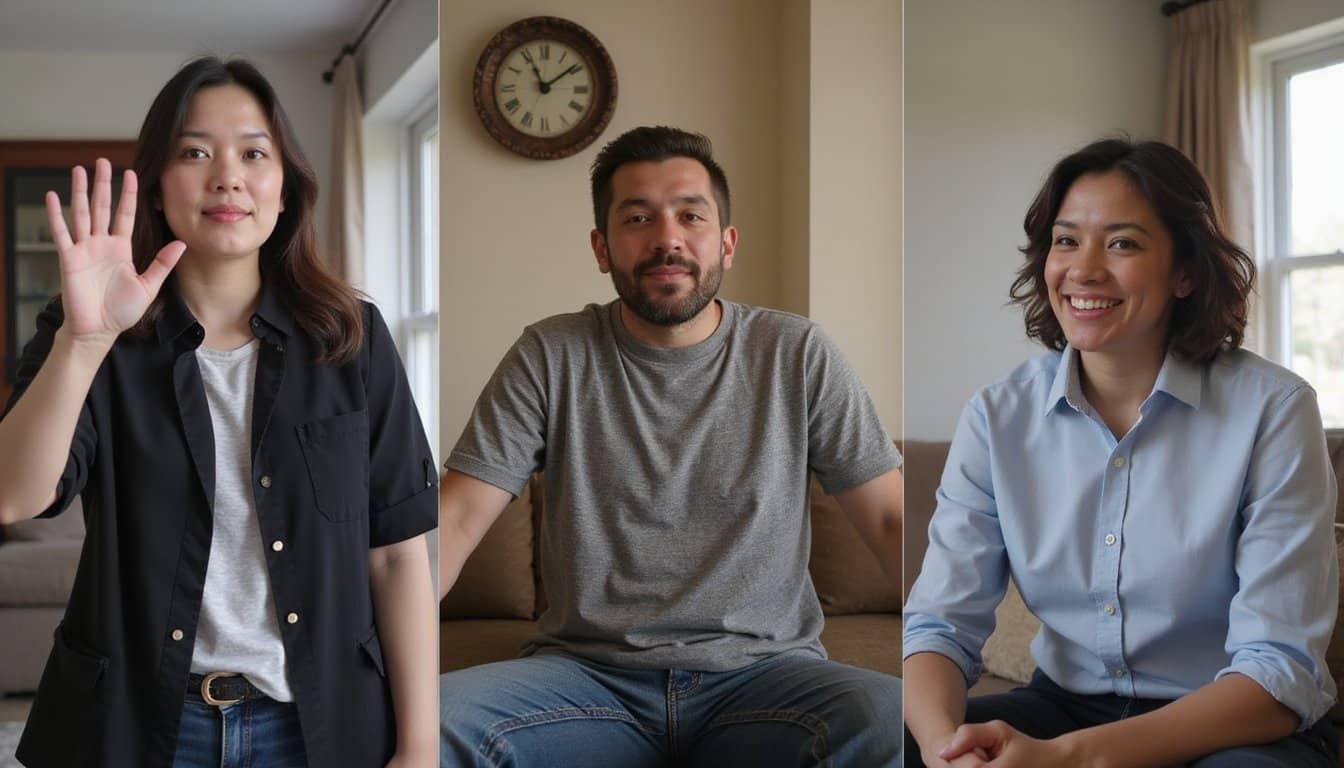Depression treatment today offers you multiple evidence-based options to contemplate. Traditional antidepressants like SSRIs work for about 50% of patients, while psychotherapy shows positive outcomes in 75% of cases. You’ll find innovative approaches, including non-invasive brain stimulation and specialized protocols like SAINT therapy, which achieves 79% remission in treatment-resistant cases. Combining medication with psychotherapy can reduce your relapse risk by up to 80%. Understanding these diverse treatment pathways will help guide your next steps.
Traditional Medication Approaches and Their Effectiveness

While antidepressant medications remain a cornerstone of depression treatment, their effectiveness varies considerably across patient populations and severity levels. Research shows that about 50% of patients experience meaningful symptom improvement within 6-8 weeks, compared to 30% who respond to placebo. When evaluating medication efficacy, SSRIs demonstrate a Number Needed to Treat (NNT) of 7, while SNRIs like venlafaxine perform slightly better with an NNT of 6. Tricyclic antidepressants show comparable effectiveness but often cause more side effects. A combination of medication and psychotherapy is considered the optimal approach for treating severe depression. Recent data indicates that women over 60 have the highest antidepressant usage rate among all demographic groups.
You’ll find that response rates typically exceed complete remission rates, with notable individual variations in treatment outcomes. For patients over 65, approximately half achieve at least 50% symptom improvement. However, it’s crucial to recognize that clinical trial results may be influenced by publication bias and industry sponsorship. Healthcare providers recommend regular monitoring appointments for teenagers starting antidepressant treatment due to potential increased risk of suicidal thoughts.
The Role of Psychotherapy in Depression Management
Psychotherapy stands as a cornerstone intervention for depression management, with empirical evidence demonstrating positive outcomes in 75% of patients. You’ll find multiple evidence-based approaches available, including Cognitive Behavior therapy, Interpersonal Therapy, Psychodynamic Approaches, and Supportive Strategies. When combined with medication, these interventions can reduce relapse risk by up to 80%. Recent studies have shown that innovative treatments like SAINT therapy can achieve remission in nearly 79% of treatment-resistant cases. Most sessions are conducted on a weekly basis to maintain consistent progress and support. For patients with mild depression, psychotherapy alone may be sufficient as an initial treatment approach.
Research shows psychotherapy effectively treats depression, offering multiple proven approaches that work even better when combined with medication.
- CBT helps you identify and challenge negative thought patterns that contribute to depression
- Interpersonal Therapy strengthens your communication skills and addresses relationship challenges
- Psychodynamic approaches explore your unconscious conflicts and past experiences
- Supportive strategies provide immediate emotional stabilization and practical problem-solving tools
Research confirms that these therapeutic modalities deliver consistent, clinically meaningful outcomes with standardized effect sizes of 0.70, making psychotherapy a reliable treatment option for managing depression symptoms.
Emerging Treatment Breakthroughs and Research

Recent breakthroughs in depression treatment have expanded therapeutic options beyond traditional approaches, with five key innovations emerging in 2024-2025. You’ll find emerging therapies like Spravato and Zuranolone leading the pharmaceutical front, while innovative mechanisms through Aticaprant target novel neurotransmitter pathways. Advanced technologies in non-invasive brain stimulation offer personalized interventions, with FDA breakthrough designation granted in March 2025. A groundbreaking brain stimulation platform demonstrated 80% effectiveness in treating clinical depression symptoms within just two weeks of use.
Virtual reality therapy has become increasingly integrated into depression treatment protocols, creating controlled environments for effective exposure therapy. Clinical trials continue to validate psilocybin-assisted therapy‘s efficacy, showing promise for treatment-resistant cases. Research explores targeted biological pathways, including GABA modulation and vasopressin V1B receptors. Industry advancements have improved accessibility, with Spravato now approved in over 90 countries and enhanced safety protocols established for emerging treatments. These developments represent significant progress in addressing depression through diverse therapeutic approaches. The development of hydroxynorketamine (HNK) represents a promising advancement as it provides antidepressant benefits without the dissociative effects commonly associated with traditional ketamine treatment.
Combining Multiple Treatment Strategies for Better Outcomes
Building on these therapeutic innovations, the combination of multiple treatment approaches has demonstrated superior outcomes compared to single-modality interventions. When you’re exploring integrative approaches, evidence shows that combining pharmacotherapy with psychotherapy markedly enhances both remission rates and long-term stability. Healthcare providers emphasize that allowing 4 to 8 weeks for medications to take full effect is crucial when implementing combination treatments. Regular mental health assessments from specialist teams ensure optimal monitoring of treatment progress. Studies indicate that STARD trials proved augmentation strategies were as effective as switching medications for treatment-resistant cases.
- Tailored therapies that combine antidepressants with CBT or IPT show higher success rates than either treatment alone
- Adding adjunctive treatments like rTMS or ketamine can boost effectiveness in treatment-resistant cases
- Integrating mindfulness-based therapies with traditional medications helps prevent relapse
- Combination approaches lead to improved quality of life metrics and reduced healthcare utilization
Research consistently validates that personalized treatment plans incorporating multiple evidence-based strategies offer the most promising path to sustained recovery, particularly for moderate to severe depression cases.
Overcoming Treatment Access Challenges

Despite significant advances in depression treatment, persistent barriers continue to limit access to essential mental health services across diverse populations. You’ll find that financial assistance programs can help offset the 80% of patients citing cost as their primary obstacle, while telehealth access expands reach in underserved areas. Over 28 million Americans with mental illness went without treatment last year. Recent data shows that 74.8 percent of individuals with severe impairment receive some form of treatment.
To combat treatment barriers, focus on stigma reduction through education campaigns and anonymous platforms, particularly beneficial for young adults and minority communities. Community outreach through partnerships with schools, religious organizations, and workplace initiatives helps normalize mental health support. Cultural competence training for providers bridges trust gaps with diverse populations, while provider recruitment incentives address severe shortages in rural areas. The gender disparity in seeking help is evident, with 43% of women receiving counseling compared to just 33.2% of men. These multi-faceted solutions work together to improve treatment accessibility across demographic and geographic boundaries.
Frequently Asked Questions
How Long Does It Typically Take for Depression Symptoms to Improve?
You’ll typically see a symptom timeline of 6-8 weeks for significant improvement when using antidepressants, with 40-60% of patients experiencing reduced symptoms during this period. Improvement factors vary, as some people respond faster while others need more time. When using therapy, particularly CBT, you can expect similar timeframes. Your individual response may differ based on treatment adherence, severity of symptoms, and whether you’re using combined treatments.
Can Lifestyle Changes Alone Effectively Treat Mild to Moderate Depression?
For mild to moderate depression, lifestyle changes can be effective as a primary intervention. You’ll see the best results by combining multiple approaches: regular physical activity (particularly walking or yoga), mindfulness practices, healthy eating patterns, and strong social connections. Research shows these changes can greatly reduce symptoms, though you should always work with a healthcare provider to monitor your progress and adjust treatment as needed.
What Role Does Genetics Play in Determining Which Treatments Work Best?
Your genetic predisposition can greatly influence how well different depression treatments work for you. Research shows that genetic variations affect both medication metabolism and treatment response. For example, certain genes may determine whether you’ll respond better to SSRIs or other antidepressant classes. While genetic testing isn’t yet standard practice, it’s becoming an increasingly valuable tool for healthcare providers to personalize treatment plans and improve outcomes.
Are There Specific Dietary Changes That Can Help Support Depression Treatment?
You can enhance depression treatment outcomes through targeted dietary changes. Research strongly supports consuming nutrient-rich foods, particularly those following a Mediterranean diet pattern. You’ll benefit most from increasing omega-3 fatty acids through fatty fish consumption and focusing on whole grains, fruits, and vegetables. Clinical trials show that reducing processed foods and incorporating antioxidant-rich foods can greatly improve mood symptoms, especially when combined with traditional treatments.
How Often Should Treatment Plans Be Reviewed and Potentially Adjusted?
You’ll typically have your treatment plan formally reviewed every 30-90 days, but adjustments can occur sooner if needed. Treatment frequency monitoring should be more intensive during early stages or if you’re experiencing severe symptoms. Your provider will conduct regular plan evaluations using standardized assessments and clinical observations. They’ll adjust your care based on your progress, symptom changes, and response to current interventions. Watch for significant changes that might warrant immediate plan modifications.






